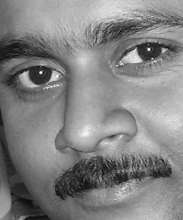MULTIDISCIPLINARY
Even though nowadays management is treated and studied as a separate discipline, it actually combines different areas of knowledge such as Psychology, Sociology, Economics, Statistics, Finance, Communication, etc. Management is a discipline which integrated different ideas and concepts from all these disciplines. Management actually means the integration of different skills and abilities in order to attain certain goals. In that sense, Management can be called Multi-Disciplinary.
A GROUP ACTIVITY
Management is a group activity. It emphasizes on the essentiality of co-ordination and co-operation among various members of a group. In that sense, management is a profession which controls and directs a team through the most feasible course of action for reaching predefined objectives.
GOAL ORIENTED
All the activities that lead to the essentiality of Management are certainly directed towards some objectives. Thus, Management is all that related to the attainment & the efforts for the attainment of Goals or Objectives. The main aim of the sum total of all Managerial activities is the attainment of certain objectives, whether economic or social. Group efforts in Management are directed towards the achievement of some pre-defined goals. Management is concerned with the accomplishment of these objectives. According to Theo Haimann, "Effective Management is always Management by Objectives (MBO)." In real life, Management without certain objectives is simply impossible.
A FACTOR OF PRODUCTION
The major factors of production are Land, Labor, Capital & Management. This means that Management is an inevitable factor for the production of commodities. Management is the most important factor of production, because it co-ordinates the other factors of production and thus leading to the effective production of commodities. Management is not an end, but a means to achievement of objectives.
UNIVERSAL IN CHARACTER
Management is applicable in every areas of life. This means that, the terms Management is not bound to Business world, or commercial activities. We can find different forms of Management in various fields such as Education, government, Family, Military, etc. The basic principles of Management are of universal in character and can be applied in any sort of organizations, whether they are business, social, political, cultural, religious, educational, sports or military.
A SOCIAL PROCESS
Management is concerned with guiding and co-coordinating others towards certain goals. It is the art of getting things done through others. This means that Management is concerned with dealing human beings. A Manager is a person who directs, co-ordinates & regulates a group of people in order to attain certain desired outcomes.That is why Management is considered as a Social Activity rather than an economical activity. An efficient Management is not what makes maximum profit, it is something that makes optimum use of available scarce resources for the benefit of the Society. According to Brech, "Management is a social process entailing responsibility for the effective and economical planning and the regulation of the operation of an enterprise, in fulfillment of a given purpose or task."
A SYSTEM OF AUTHORITY
Management is the art of directing and controlling others in order to accomplish specific objectives. For this, a Manager should certainly have some sort of authority over others. Assignment of duties and responsibilities without proper authority or power is meaningless. Thus Management by itself is a system and source of authority. In real life, a Management body is something that makes and enforces rules and regulations.There exists a chain of authority and responsibility among the various levels of management in an organization.
DYNAMIC IN NATURE (SITUATIONAL)
Management is a dynamic function. This means that the methods of Management should be changed always according to the changing scenario in economy and society. We can not apply the same Management tactics in all the situations. Different approaches and means should be adopted according to different situations. For this, a Manager should be innovative. He must have the capacity to develop new ideas and thoughts. Only a person having a dynamic personality can become a good Manager.
BOTH ART & SCIENCE
Management is considered as both science and art. That means it possesses the qualities of both science and art. Science is the systematic study of knowledge while an art is the practical application of such acquired knowledge. Management involves both; i.e., acquisition of systematic knowledge and the application of that knowledge. So, Management is both Science and Art.
A PROFESSION
Management is a profession which is taken by a large number of people as their career. unlike old days, when the Management was carried out by people at different functional areas, with the development of modern business environment, a level of employees became prominent who have their specific knowledge in Management and view it as their profession.
INTANGIBLE
Management is an intangible integrating force which does not have any physical aspects. It cannot be measured on the basis of Scores, Grades or Units. We cannot actually SEE Management. Instead, we can FEEL it. That is why it is considered as an Intangible Functional Area.
INTEGRATIVE
Management is an integrating skill. Management is that factor of production which coordinates other factors such as Land, Labor and Capital are effectively coordinated to yield production. Only a good Coordinator can be a good Manager. If there is no element of integration in Management, then all other activities will be in vain.
CONTINUOUS
We have already seen that Management is Dynamic and Situational. Besides these, it is also Continuous. Management is never a one-time process. We can produce best results only by continuous and consistent application of various Management tools and methodologies. A GRADUAL DEVELOPMENT PATTERN should be applied when dealing with different functional areas that are related to Management such as Human Resource Development, Resource Allocation, Customer Services, etc.
